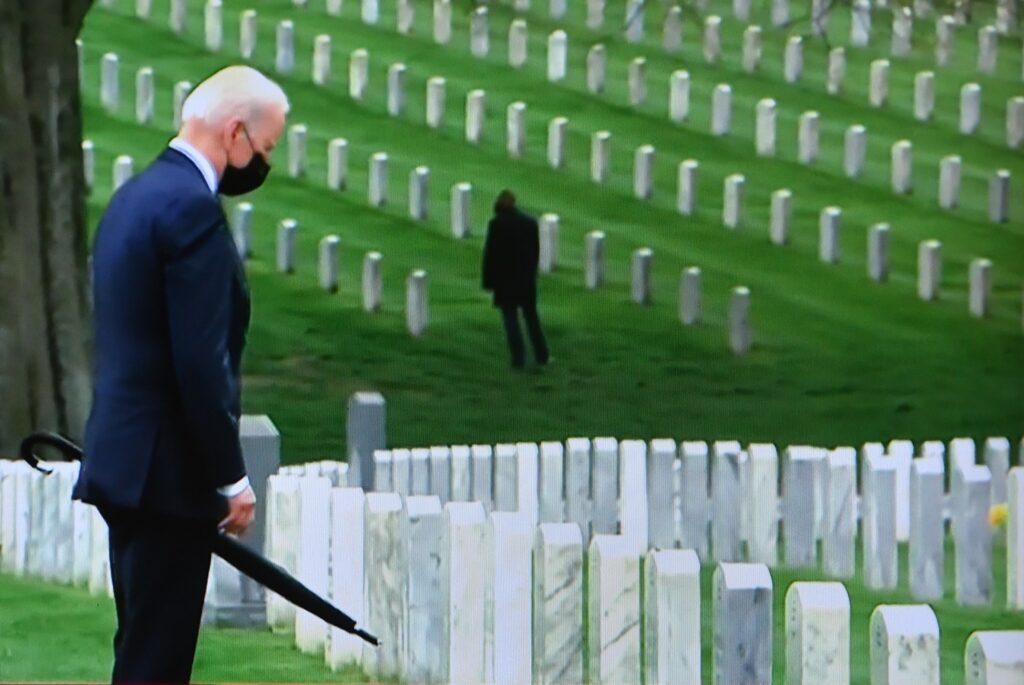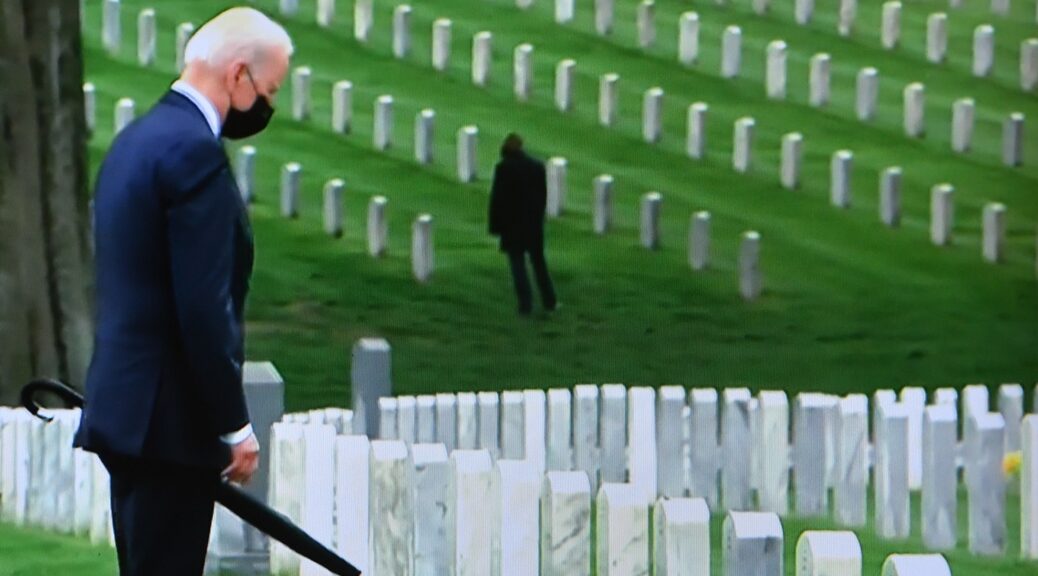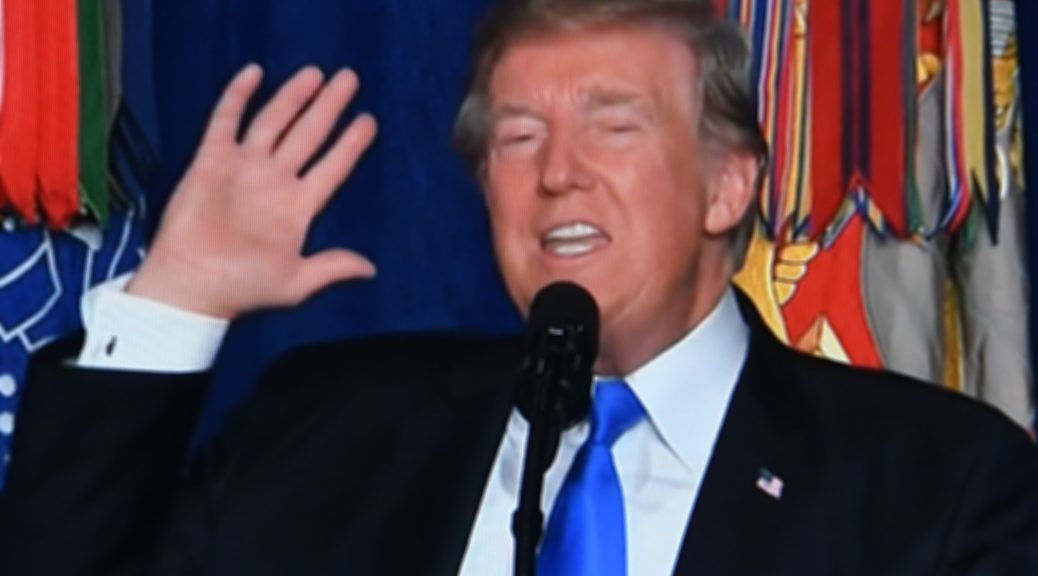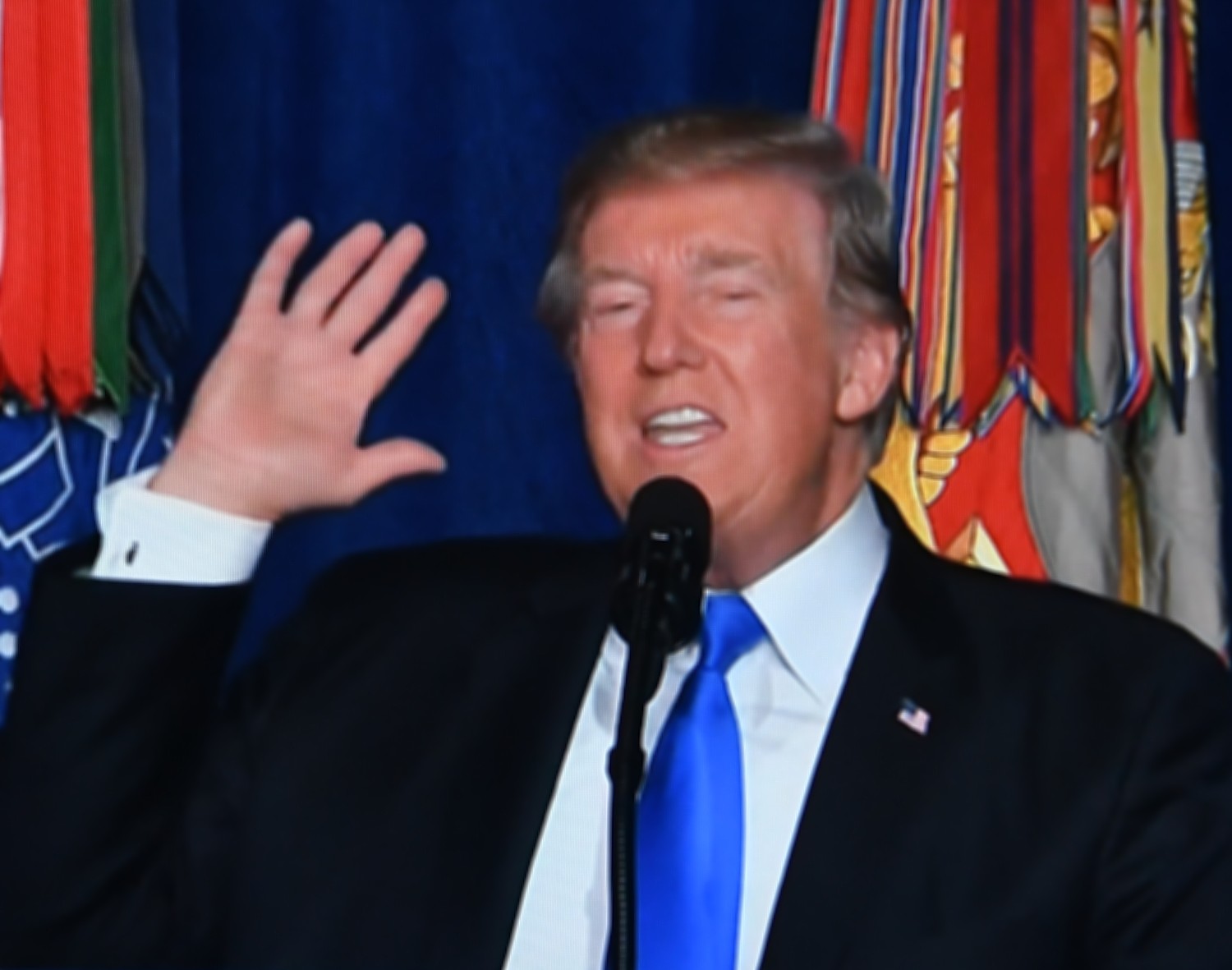
On April 14, speaking from the Treaty Room in the White House, President Joe Biden declared that American troops would be out of Afghanistan, America’s longest war, by September 11, 2021, 20 years after the terror attacks masterminded by Osama bin Laden and Al Qaeda that left 3000 dead New York, Washington DC and Shanksville, PA. here is a highlighted transcript:
Good afternoon. I’m speaking to you today from the Roosevelt — the Treaty Room in the White House. The same spot where, on October of 2001, President George W. Bush informed our nation that the United States military had begun strikes on terrorist training camps in Afghanistan. It was just weeks — just weeks after the terrorist attack on our nation that killed 2,977 innocent souls; that turned Lower Manhattan into a disaster area, destroyed parts of the Pentagon, and made hallowed ground of a field in Shanksville, Pennsylvania, and sparked an American promise that we would “never forget.”
We went to Afghanistan in 2001 to root out al Qaeda, to prevent future terrorist attacks against the United States planned from Afghanistan. Our objective was clear. The cause was just. Our NATO Allies and partners rallied beside us. And I supported that military action, along with overwhelming majority of the members of Congress.
More than seven years later, in 2008, weeks before we swore the oath of office — President Obama and I were about to swear — President Obama asked me to travel to Afghanistan and report back on the state of the war in Afghanistan. I flew to Afghanistan, to the Kunar Valley — a rugged, mountainous region on the border with Pakistan. What I saw on that trip reinforced my conviction that only the Afghans have the right and responsibility to lead their country, and that more and endless American military force could not create or sustain a durable Afghan government.
I believed that our presence in Afghanistan should be focused on the reason we went in the first place: to ensure Afghanistan would not be used as a base from which to attack our homeland again. We did that. We accomplished that objective.
I said, among — with others, we’d follow Osama bin Laden to the gates of hell if need be. That’s exactly what we did, and we got him. It took us close to 10 years to put President Obama’s commitment into form. And that’s exactly what happened; Osama bin Laden was gone.
That was 10 years ago. Think about that. We delivered justice to bin Laden a decade ago, and we’ve stayed in Afghanistan for a decade since. Since then, our reasons for remaining in Afghanistan are becoming increasingly unclear, even as the terrorist threat that we went to fight evolved.
Over the past 20 years, the threat has become more dispersed, metastasizing around the globe: al-Shabaab in Somalia; al Qaeda in the Arabian Peninsula; al-Nusra in Syria; ISIS attempting to create a [caliphate] in Syria and Iraq, and establishing affiliates in multiple countries in Africa and Asia.
With the terror threat now in many places, keeping thousands of troops grounded and concentrated in just one country at a cost of billions each year makes little sense to me and to our leaders. We cannot continue the cycle of extending or expanding our military presence in Afghanistan, hoping to create ideal conditions for the withdrawal, and expecting a different result.
I’m now the fourth United States President to preside over American troop presence in Afghanistan: two Republicans, two Democrats. I will not pass this responsibility on to a fifth.
After consulting closely with our allies and partners, with our military leaders and intelligence personnel, with our diplomats and our development experts, with the Congress and the Vice President, as well as with Mr. Ghani and many others around the world, I have concluded that it’s time to end America’s longest war. It’s time for American troops to come home.
When I came to office, I inherited a diplomatic agreement, duly negotiated between the government of the United States and the Taliban, that all U.S. forces would be out of Afghanistan by May 1, 2021, just three months after my inauguration. That’s what we inherited — that commitment.
It is perhaps not what I would have negotiated myself, but it was an agreement made by the United States government, and that means something. So, in keeping with that agreement and with our national interests, the United States will begin our final withdrawal — begin it on May 1 of this year.
We will not conduct a hasty rush to the exit. We’ll do it — we’ll do it responsibly, deliberately, and safely. And we will do it in full coordination with our allies and partners, who now have more forces in Afghanistan than we do.
And the Taliban should know that if they attack us as we draw down, we will defend ourselves and our partners with all the tools at our disposal.
Our allies and partners have stood beside us shoulder-to-shoulder in Afghanistan for almost 20 years, and we’re deeply grateful for the contributions they have made to our shared mission and for the sacrifices they have borne.
The plan has long been “in together, out together.” U.S. troops, as well as forces deployed by our NATO Allies and operational partners, will be out of Afghanistan before we mark the 20th anniversary of that heinous attack on September 11th.
But — but we’ll not take our eye off the terrorist threat. We’ll reorganize our counterterrorism capabilities and the substantial assets in the region to prevent reemergence of terrorists — of the threat to our homeland from over the horizon. We’ll hold the Taliban accountable for its commitment not to allow any terrorists to threaten the United States or its allies from Afghan soil. The Afghan government has made that commitment to us as well. And we’ll focus our full attention on the threat we face today.
At my direction, my team is refining our national strategy to monitor and disrupt significant terrorist threats not only in Afghanistan, but anywhere they may arise — and they’re in Africa, Europe, the Middle East, and elsewhere.
I spoke yesterday with President Bush to inform him of my decision. While he and I have had many disagreements over policies throughout the years, we’re absolutely united in our respect and support for the valor, courage, and integrity of the women and men of the United States Armed Forces who served. I’m immensely grateful for the bravery and backbone that they have shown through nearly two decades of combat deployments. We as a nation are forever indebted to them and to their families.
You all know that less than 1 percent of Americans serve in our armed forces. The remaining 99 percent of them — we owe them. We owe them. They have never backed down from a single mission that we’ve asked of them.
I’ve witnessed their bravery firsthand during my visits to Afghanistan. They’ve never wavered in their resolve. They’ve paid a tremendous price on our behalf. And they have the thanks of a grateful nation.
While we will not stay involved in Afghanistan militarily, our diplomatic and humanitarian work will continue. We’ll continue to support the government of Afghanistan. We will keep providing assistance to the Afghan National Defenses and Security Forces.
And along with our partners, we have trained and equipped a standing force of over 300,000 Afghan personnel today and hundreds of thousands over the past two decades. And they’ll continue to fight valiantly, on behalf of the Afghans, at great cost. They’ll support peace talks, as we will support peace talks between the government of Afghanistan and the Taliban, facilitated by the United Nations. And we’ll continue to support the rights of Afghan women and girls by maintaining significant humanitarian and development assistance.
And we’ll ask other countries — other countries in the region — to do more to support Afghanistan, especially Pakistan, as well as Russia, China, India, and Turkey. They all have a significant stake in the stable future for Afghanistan.
And over the next few months, we will also determine what a continued U.S. diplomatic presence in Afghanistan will look like, including how we’ll ensure the security of our diplomats.
Look, I know there are many who will loudly insist that diplomacy cannot succeed without a robust U.S. military presence to stand as leverage. We gave that argument a decade. It’s never proved effective — not when we had 98,000 troops in Afghanistan, and not when we were down to a few thousand.
Our diplomacy does not hinge on having boots in harm’s way — U.S. boots on the ground. We have to change that thinking. American troops shouldn’t be used as a bargaining chip between warring parties in other countries. You know, that’s nothing more than a recipe for keeping American troops in Afghanistan indefinitely.
I also know there are many who will argue that we should stay — stay fighting in Afghanistan because withdrawal would damage America’s credibility and weaken America’s influence in the world. I believe the exact opposite is true.
We went to Afghanistan because of a horrific attack that happened 20 years ago. That cannot explain why we should remain there in 2021.
Rather than return to war with the Taliban, we have to focus on the challenges that are in front of us. We have to track and disrupt terrorist networks and operations that spread far beyond Afghanistan since 9/11.
We have to shore up American competitiveness to meet the stiff competition we’re facing from an increasingly assertive China. We have to strengthen our alliances and work with like-minded partners to ensure that the rules of international norms that govern cyber threats and emerging technologies that will shape our future are grounded in our democratic values — values — not those of the autocrats.
We have to defeat this pandemic and strengthen the global health system to prepare for the next one, because there will be another pandemic.
You know, we’ll be much more formidable to our adversaries and competitors over the long term if we fight the battles for the next 20 years, not the last 20.
And finally, the main argument for staying longer is what each of my three predecessors have grappled with: No one wants to say that we should be in Afghanistan forever, but they insist now is not the right moment to leave.
In 2014, NATO issued a declaration affirming that Afghan Security Forces would, from that point on, have full responsibility for their country’s security by the end of that year. That was seven years ago.
So when will it be the right moment to leave? One more year, two more years, ten more years? Ten, twenty, thirty billion dollars more above the trillion we’ve already spent?
“Not now” — that’s how we got here. And in this moment, there’s a significant downside risk to staying beyond May 1st without a clear timetable for departure.
If we instead pursue the approach where America — U.S. exit is tied to conditions on the ground, we have to have clear answers to the following questions: Just what conditions require to — be required to allow us to depart? By what means and how long would it take to achieve them, if they could be achieved at all? And at what additional cost in lives and treasure?
I’m not hearing any good answers to these questions. And if you can’t answer them, in my view, we should not stay. The fact is that, later today, I’m going to visit Arlington National Cemetery, Section 60, and that sacred memorial to American sacrifice.
Section 60 is where our recent war dead are buried, including many of the women and men who died fighting in Afghanistan and Iraq. There’s no — there’s no comforting distance in history in Section 60. The grief is raw. It’s a visceral reminder of the living cost of war.
For the past 12 years, ever since I became Vice President, I’ve carried with me a card that reminds me of the exact number of American troops killed in Iraq and Afghanistan. That exact number, not an approximation or rounded-off number — because every one of those dead are sacred human beings who left behind entire families. An exact accounting of every single solitary one needs to be had.
As of the day — today, there are [2,448] U.S. troops and personnel who have died in Operation Enduring Freedom and Operation Freedom’s Sentinel — our Afghanistan conflicts. 20,722 have been wounded.
I’m the first President in 40 years who knows what it means to have a child serving in a warzone. And throughout this process, my North Star has been remembering what it was like when my late son, Beau, was deployed to Iraq — how proud he was to serve his country; how insistent he was to deploy with his unit; and the impact it had on him and all of us at home.
We already have service members doing their duty in Afghanistan today whose parents served in the same war. We have service members who were not yet born when our nation was attacked on 9/11.
War in Afghanistan was never meant to be a multi-generational undertaking. We were attacked. We went to war with clear goals. We achieved those objectives. Bin Laden is dead, and al Qaeda is degraded in Iraq — in Afghanistan. And it’s time to end the forever war.
Thank you all for listening. May God protect our troops. May God bless all those families who lost someone in this endeavor.



